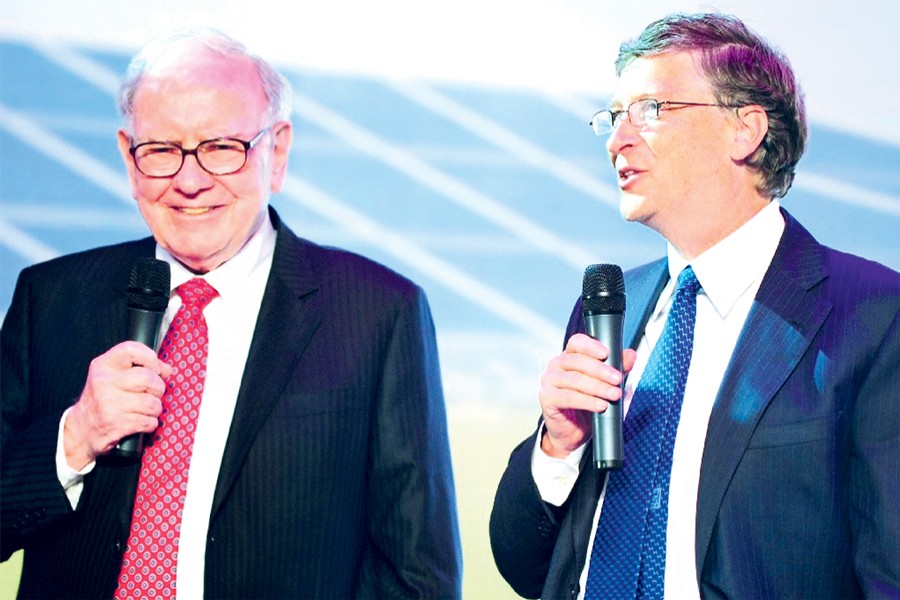Success in business is normally associated with an outgoing go-getter attitude and being an extrovert is generally encouraged in any business setting. However, for an introvert, this type of attitude creates a big challenge. It is really easy for an introvert to get demoralised and end up being convinced that one might never thrive in the business world due to their seemingly innate shortcomings. An online survey conducted with 1,542 senior-level managers of global companies making at least US$ 100,000 a year revealed that about 65 per cent of them viewed being an introvert as an obstacle to climbing the ladder.
Despite what most people perceive to be true, what is most intriguing is the fact that Bill Gates, Warren Buffet, Mark Zuckerberg - all these supreme business magnates, in fact, identify themselves as introverts. On top of that, a poll run by USA Today newspaper has illustrated that a whopping 40 per cent of people who are in leadership positions are in fact introverts. So why is being an introvert still regarded as a disadvantageous personality component in a business setting?
In order to understand this, let us first dig deeper into the characteristics of the two types of personalities. First of all, being an introvert is not shyness, which derives from social fear or anxiety or some other external stimuli. Rather, being an introvert or an extrovert are simply two different ways of reacting to social settings caused by different hard wirings in the brain.
If explained scientifically then introverts, quite simply have a lower threshold for dopamine sensitivity than do extroverts. Dopamine is the chemical that is associated with the pleasure that we get from being rewarded. In other words, dopamine is the chemical that when released, gives a sense of being rewarded which eventually makes us feel good. Since introverts have lower threshold for dopamine, introverts get the pleasure of being rewarded by being themselves or being with a small group of people. Put them in the middle of a large group, and they get overwhelmed. On the other hand, extroverts do not get enough reward for being alone. they simply need large crowds to get energised. This basic biological foundation differentiates the characteristics of extroverts from those of introverts. Simply put, introverts recharge themselves by being all by themselves whereas extroverts get energy from interacting with large group of people.
This basic difference leads an introvert to show characteristics that are different from those of extroverts. Introverts do not seem to be comfortable with huge crowd, at least not for very long whereas extroverts embrace large groups of people. Interpersonal interaction seem to be draining for introverts, whereas extroverts seem to draw energy from heavy social settings. Introverts seem to be thoughtful and slower to respond - they tend to think hard before voicing their opinion. On the other hand, extroverts tend to be blurting out whatever comes to their mind without spending too much time brooding over it. Introverts seem to seek in depth knowledge on a topic rather than seeking superficial knowledge on a broad range of topics.
Now, to succeed in any business setting, the key skills to have include public speaking, effective communication, quick and effective decision-making capability, and so on.
In other words, thriving in business largely depends on voicing one's opinion and interacting with large groups of people. And clearly, extroverts get a competitive edge in this over introvert. Introverts possess certain other qualities that make them a better candidate in business than extroverts: They are usually better listeners. Although they get exhausted from large group interaction, they are very skilled in one-on-one conversations. Whereas extroverts excel in small talks, introverts stand out when it comes to getting to know a person from the inside. This quality makes introverts better leaders. Introverts complement extroverts. They possess qualities that extroverts lack, which makes introverts very effective partners. They can put fresh perspective to the table which is highly necessary in effective decision making. Introverts' tendency of thinking very carefully before opening up makes them a better and more useful solution provider.
Being an introvert is not a counterproductive business attribute, rather some characteristics that it leads up to are in fact quite helpful. Hence, being able to effectively leverage them and strategically partnering up with an extrovert should be a good starting point. However, due to their unwillingness to speak up, their true potential rarely gets exposure which may limit their success. That does not mean they have to change their personality. Rather, they should start learning how to get out of their comfort zone.
They should always stay prepared for interaction with people when necessary. The goal is to get comfortable with the idea of sudden social or work-related interactions. They should start expressing their opinion more often. This might seem tough for an introvert, but the way to go is to start small and once comfortable, make it a little bit more challenging.
Adam Grant, author and professor of management at the Wharton School at the University of Pennsylvania explains it the best: "Your personality is a tendency that is in part biological, in part learned. But we can choose to override that tendency when the time is right, and I think that is something we all need to get comfortable doing."
The writer is a first year student of BBA programme at the Institute of Business Administration (IBA), University of Dhaka. He can be reached at [email protected]


